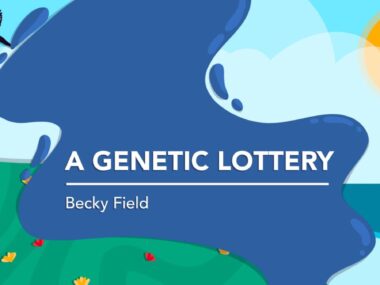As a Huntington’s caregiver, keeping an open mind is crucial
What I learned from making false assumptions about my dad's symptoms
Written by |

My late father had been suffering from Huntington’s disease for about two years, and our family was struggling to manage his care ourselves. We were extremely fortunate to find Dad a personal assistant, Graham, who was the best we could’ve wished for. He was similar in age to Dad and had similar interests. Graham was such a kind and caring man, with a fantastic sense of humor. He became a lifelong friend of ours, too.
Cockington Country Park, which is on the outskirts of Torquay, in southern England, had always been one of my dad’s favorite places. It has a thatched village with tearooms, art studios, lakes, a pub, woodlands, and gardens, and is generally full of tourists in summer but much quieter in winter. He’d enjoyed walking there for years with our dog, Benny, and continued doing so throughout his life.
Naturally, the park became somewhere Dad and Graham frequently went together.
A lesson in caregiving
They were out walking in Cockington one day, about five years after Dad’s diagnosis. He had seemed perfectly well before they set out and during the first half of their walk. They were heading back toward the car when Dad started leaning backward. He was leaning so far that if Graham wasn’t supporting his back, he would’ve fallen over.
Graham managed to get Dad to a bench to rest, and offered to go to the car to fetch a wheelchair. My dad was so stubborn and determined that he refused. Somehow, slowly, with Graham’s help, they made it back to the car.
When they arrived home, Graham called Dad’s general practitioner. The doctor called for an ambulance, fearing Dad may have had a stroke and wanting to rule that possibility out.
The paramedics gave Dad a thorough exam and discovered that he had developed an inner ear infection, which had affected his balance. Dad had been prone to ear problems his whole life, but with Huntington’s, he wasn’t able to articulate his pain to us. Indeed, we now know that, because of Huntington’s, he may not have even noticed the infection or felt it in the way most people would. His cognitive and sensory impairment may have prevented him from processing this.
I felt guilty because I had mistakenly assumed that Huntington’s had caused the episode. As a caregiver, I was reminded that even though he had Huntington’s, Dad could still be affected by other illnesses and conditions. I realized I needed to keep an open mind in order to give him the best care possible, and I made a conscious effort to do so thereafter.
Note: Huntington’s Disease News is strictly a news and information website about the disease. It does not provide medical advice, diagnosis, or treatment. This content is not intended to be a substitute for professional medical advice, diagnosis, or treatment. Always seek the advice of your physician or other qualified health provider with any questions you may have regarding a medical condition. Never disregard professional medical advice or delay in seeking it because of something you have read on this website. The opinions expressed in this column are not those of Huntington’s Disease News or its parent company, Bionews, and are intended to spark discussion about issues pertaining to Huntington’s disease.




David McDonagh
Brilliantly written Becky and another useful lesson for people caring for HD sufferers. Thank you.
Becky Field
Thank you, David! So kind of you to take the time to read and comment.